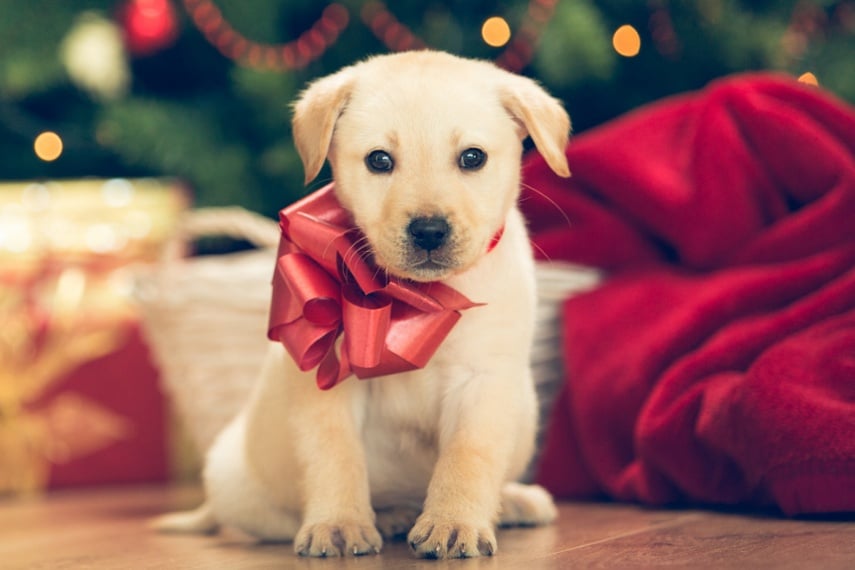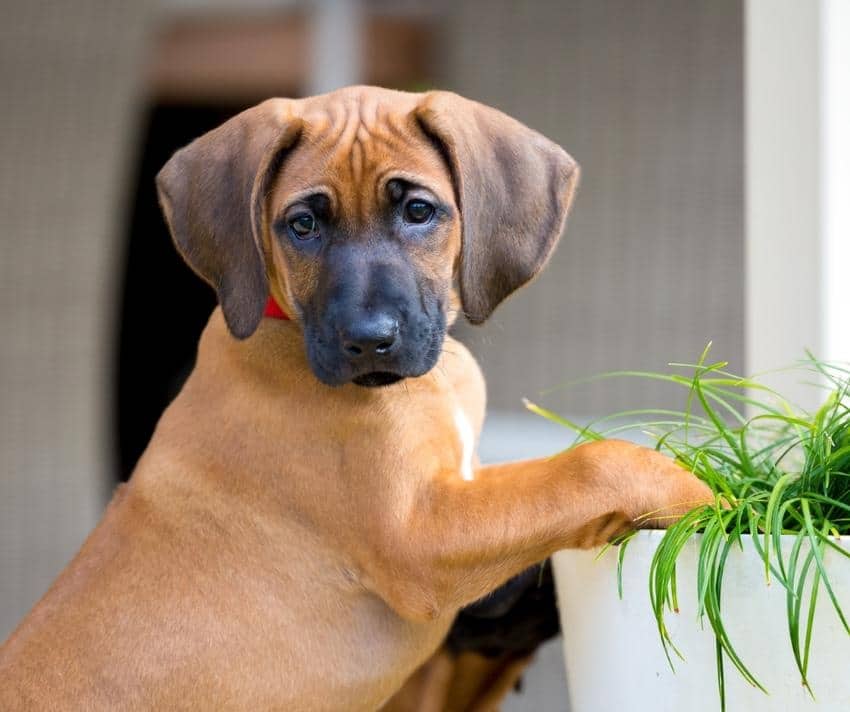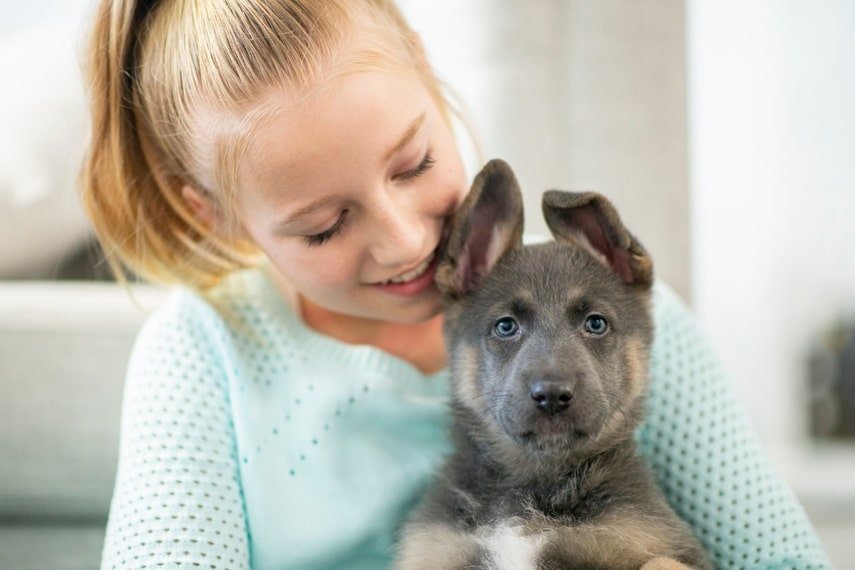Taking care of a Rhodesian Ridgeback puppy involves a committed and knowledgeable strategy to promote…

Preparing Your Home for the New Arrival – The Ultimate Guide to Welcoming a Puppy
Introduction: The Excitement of Welcoming a New Puppy into Your Home
Welcoming a new puppy into your home is an exciting and joyous occasion. The anticipation of bringing home a furry bundle of love and energy can be overwhelming, but with proper preparation, you can ensure a smooth transition for both you and your new four-legged family member. This ultimate guide will provide you with all the necessary information and tips to prepare your home for the arrival of your new puppy.
Puppy-Proofing Your Home: Creating a Safe Environment for Your New Arrival
Before bringing your new puppy home, it is crucial to puppy-proof your living space. Puppies are naturally curious and love to explore, which can sometimes lead to accidents or injuries. Start by removing any potential hazards such as toxic plants, electrical cords, and small objects that could be swallowed. Secure cabinets and trash cans to prevent your puppy from accessing harmful substances or choking hazards.
Additionally, consider using baby gates to restrict access to certain areas of your home, especially those with stairs or fragile items. Ensure that all windows and doors are securely closed and that there are no gaps or holes in your fence that your puppy could escape through. By taking these precautions, you can create a safe environment for your new arrival to explore and play in.
Essential Supplies: Must-Have Items for Your Puppy’s Arrival
To ensure a smooth transition for your new puppy, it is essential to have all the necessary supplies ready before their arrival. Some must-have items include a comfortable bed, food and water bowls, high-quality puppy food, chew toys, a leash and collar, and grooming supplies. Additionally, consider purchasing a crate for crate training, as well as puppy pads or a designated potty area for house training.
Setting Up a Comfortable Space: Designing a Cozy Area for Your Puppy
Creating a comfortable space for your puppy is crucial for their well-being and sense of security. Designate a specific area in your home where your puppy can relax and feel safe. This area should include their bed, food and water bowls, and a few toys. Consider placing a soft blanket or towel in their bed to provide extra comfort.
It is also important to provide your puppy with mental stimulation. Interactive toys, such as puzzle toys or treat-dispensing toys, can keep them entertained and prevent boredom. Remember to rotate their toys regularly to keep them engaged and interested.
Establishing a Routine: Creating a Schedule for Feeding, Exercise, and Training
Establishing a routine is essential for your puppy’s overall well-being and development. Dogs thrive on consistency and predictability, so creating a schedule for feeding, exercise, and training will help them feel secure and confident in their new environment.
Start by setting specific times for feeding your puppy. Puppies usually require three to four meals a day, depending on their age and breed. Consistency in feeding times will help regulate their digestion and prevent accidents in the house.
Regular exercise is also crucial for your puppy’s physical and mental health. Take them for walks or play interactive games to burn off excess energy. Remember that puppies have shorter attention spans, so keep training sessions short and fun. Positive reinforcement techniques, such as treats and praise, will help them learn and retain commands more effectively.
Introducing Your Puppy to Family Members and Other Pets: Tips for a Smooth Transition
Introducing your new puppy to family members and other pets requires patience and careful planning. Start by allowing your puppy to explore their new surroundings and get comfortable before introducing them to other family members or pets. Gradually introduce them to new individuals in a calm and controlled environment.
When introducing your puppy to other pets, it is important to supervise their interactions and ensure that they are positive and stress-free. Allow them to sniff and observe each other from a distance before gradually allowing closer contact. Reward both pets for calm and friendly behavior to reinforce positive associations.
House Training 101: Effective Techniques for Potty Training Your Puppy
House training is one of the most important aspects of welcoming a new puppy into your home. It requires patience, consistency, and positive reinforcement. Start by establishing a designated potty area in your yard or using puppy pads indoors.
Take your puppy to their designated potty area after meals, naps, and playtime, as well as first thing in the morning and last thing at night. Use a consistent command, such as “go potty,” to associate the behavior with the command. When your puppy eliminates in the correct spot, reward them with praise and treats.
Accidents are bound to happen during the house training process. When accidents occur, it is important not to scold or punish your puppy. Instead, clean up the mess thoroughly and continue with the training process. Consistency and positive reinforcement will help your puppy understand where they should eliminate.
Socialization: Helping Your Puppy Adapt to New People, Places, and Experiences
Socialization is a crucial aspect of raising a well-rounded and confident puppy. Exposing your puppy to new people, places, and experiences from an early age will help them develop into a friendly and adaptable adult dog.
Start by introducing your puppy to a variety of people, including children, adults, and individuals wearing different types of clothing or accessories. Encourage gentle interactions and reward your puppy for calm and friendly behavior.
Expose your puppy to different environments, such as parks, busy streets, and pet-friendly stores. Gradually increase the level of exposure to new experiences, ensuring that your puppy feels safe and comfortable throughout the process.
Health and Wellness: Veterinary Care, Vaccinations, and Grooming for Your Puppy
Ensuring the health and wellness of your new puppy is of utmost importance. Schedule an appointment with a veterinarian as soon as possible to establish a baseline for your puppy’s health and to discuss vaccinations, deworming, and flea and tick prevention.
Regular grooming is also essential for your puppy’s well-being. Start by introducing them to grooming tools, such as brushes and nail clippers, in a positive and gentle manner. Regular brushing will help keep their coat clean and free of tangles, while nail trims will prevent discomfort and potential injuries.
Basic Training: Teaching Your Puppy Commands, Boundaries, and Good Behavior
Basic training is an essential part of welcoming a new puppy into your home. Teaching your puppy basic commands, such as sit, stay, and come, will not only make your life easier but also ensure their safety and well-being.
Positive reinforcement techniques, such as treats and praise, are highly effective in training puppies. Break down commands into small steps and reward your puppy for each successful attempt. Consistency and patience are key to successful training.
Setting boundaries is also important for your puppy’s behavior. Teach them what is acceptable and what is not, such as not jumping on furniture or chewing on household items. Redirect their behavior to appropriate toys or activities and reward them for good behavior.
Building a Lifelong Bond: Nurturing a Loving Relationship with Your New Puppy
Building a lifelong bond with your new puppy is a rewarding and fulfilling experience. Spend quality time with your puppy, engaging in activities they enjoy, such as playtime, walks, and training sessions. This will not only strengthen your bond but also provide mental and physical stimulation for your puppy.
Remember to be patient and understanding as your puppy grows and learns. Celebrate their successes and provide comfort and support during challenging times. With love, care, and proper training, you can build a strong and loving relationship with your new puppy that will last a lifetime.
Welcoming a new puppy into your home is an exciting and rewarding experience. By puppy-proofing your home, providing essential supplies, creating a comfortable space, establishing a routine, introducing your puppy to family members and other pets, house training effectively, socializing your puppy, ensuring their health and wellness, teaching basic commands and boundaries, and nurturing a loving relationship, you can ensure a smooth transition and build a strong bond with your new furry family member. Remember, patience, consistency, and positive reinforcement are key to raising a happy and well-adjusted puppy.


